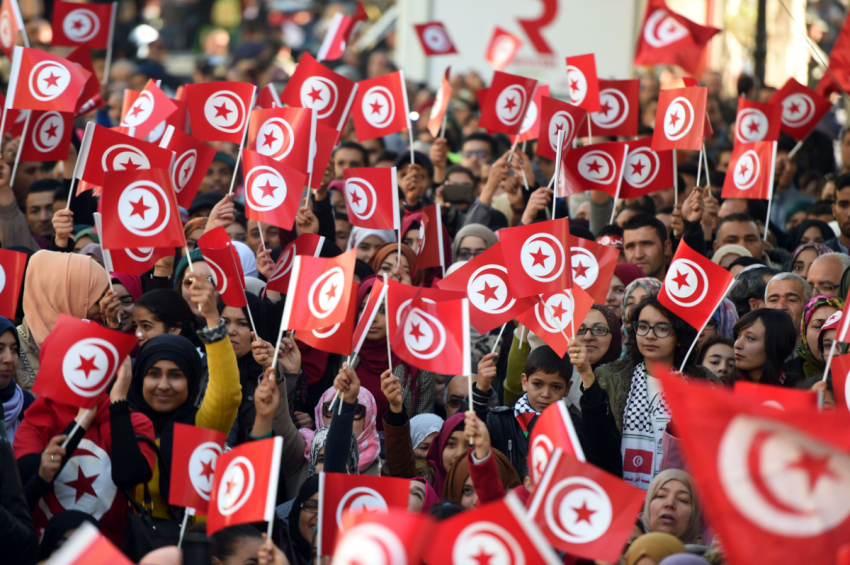'Dragged in the street': Christian persecution in Tunisia still rampant decade after revolution

A decade after the Tunisian Revolution, a new human rights report details the siege on religious freedom for Christians and other faith minorities in the Muslim-majority country, sharing cases in which followers of Jesus were harassed, dragged into the street, threatened and arrested.
The Attalaki Association for Liberty and Equality Committee on Religious Freedom published the annual report on the freedom of religion and belief in Tunisia for 2020. The organization was founded in 2016 to call for dialogue between religions and make the voices of religious minorities heard.
Its committee on religious freedom, established in 2019, monitors religious freedom abuses and documents the situation for religious minorities living in the north African country.
The new report shared that though it’s been over 10 years since the Tunisian Revolution, which ended the regime of then-President Zine El Abidine Ben Ali and led to the Arab Spring protests across the Middle East as well as began the process of Tunisian democracy, managing pluralism in Tunisia remains a challenge.
The report shared that Tunisia’s 2014 Constitution is the first Arab country’s constitution to “explicitly enshrine freedom of conscience." Yet, it makes Islam the religion of the state and stipulates the president must be Muslim. Religious minorities are also kept out of positions in the government and military.
Even though the Constitution of the Second Republic states that “the state is the guardian of religion” and “guarantees freedom of belief and conscience,” free exercise of religion in Tunisia for religious minorities is threatened by multiple factors.
Many Christians in Tunisia live out their faith in isolation for fear of backlash from family members or society and often struggle to find employment, the report finds.
The report said despite the fact both religious and non-religious communities are citizens, many minorities feel as if they are second-class citizens excluded from some citizenship rights due to the lack of security.
The researchers warn that the state often ignores religious freedom issues, and policy to protect the Christians, Jews, Baha'is and other faith minorities is virtually nonexistent. Additionally, the report states that hate speech against religious minorities is also prevalent.
Instances of persecution present themselves in a variety of ways. Over the last year, there were multiple accounts of persecution against religious minorities.
According to the report, a Christian family living in the southern suburbs of the capital was victim to harassment and hate slogans from the community last March. One of the female family members was dragged into the street by her hair and punched in the face repeatedly as neighbors called her obscene names.
After filing a complaint after the attack, the committee stated that police paid little attention to the issue until a medical charge was submitted to inspect the violence committed against her. The police then began to interrogate her about her religion, how she could obtain religious books and publications, what church she attends and who she communicates with.
The Attalaki Association appointed a lawyer for the victim, who plans to submit a complaint to the public prosecutor due to the police station’s initial negligence.
The association also reported on the case of a Christian girl who was arrested and interrogated by police at the metro station in the capital for wearing a cross necklace on June 25. She was released to her mother less than two hours after her arrest.
In August, a Christian pastor in southern Tunisia was said to have been threatened on Facebook to leave the country or be killed. He said he lives in a state of constant fear and has been harassed multiple times for being an “apostate” and “social threat in the eyes of the extremists.”
In October, a woman in her 50’s was beaten by her brother for having religious beliefs outside of Islam. She filed a police complaint but was not listened to by authorities, the report claimed.
Since the COVID-19 quarantine protocol Tunisia began on March 22, Attalaki Association “observed complete disregard by state institutions for the status of religious minorities.”
Once restrictions were lifted, the Association of Freedom and Equality and the German think tank Konrad Adenauer Foundation held a discussion on the government’s inequality toward non-Islamic religions in handling the pandemic.
Minority faith groups face a national identity crisis and the absence of a legal framework to protect their ability to exercise religion freely, the report continued. This leads to the promotion of hate speech and extremism.
“The threats faced by non-Muslim Tunisians and Muslims from sectarian minorities in Tunisia are a product of the legal disregard for the status of these semi-marginalized minorities,” the report read.
At the end of the report, Attalacki Association offered recommendations to official state institutions concerning religious liberty.
Open Doors USA, an international nonprofit that spreads awareness of the persecution in over 60 countries, reports the average Christian in Tunisia experiences a very high level of persecution, especially for Christians from a Muslim background.
There are roughly 23,000 Christians in the population of 11.9 million, with over 99% of the population practicing Islam. Most of the Muslims are adherents to Sunni Islam, according to World Watch Research, the research arm of Open Doors.
Ranked No. 26 on the Open Doors 20201 World Watch List for Christian persecution, Tunisia is a hostile place for Christians due to intense Islamic oppression. Tunisia’s rank rose from No. 34 since last year due to an increase in violence against Christians and destruction of Christian homes, businesses and properties, as well as pressure on Church life, according to WWR.
Canadian Broadcasting Company journalist, Priscilla Hwang, said persecution in Tunisia is often seen below the surface.
“Tunisian Christians face discrimination and targeting that is often obscure and hidden to the public eye,” Hwang said. “It affects their day-to-day lives. Because of their Christian identities, many experience job insecurity, abandonment from family, friends and even fiancés; they are victims of verbal, mental and physical abuse.”



























